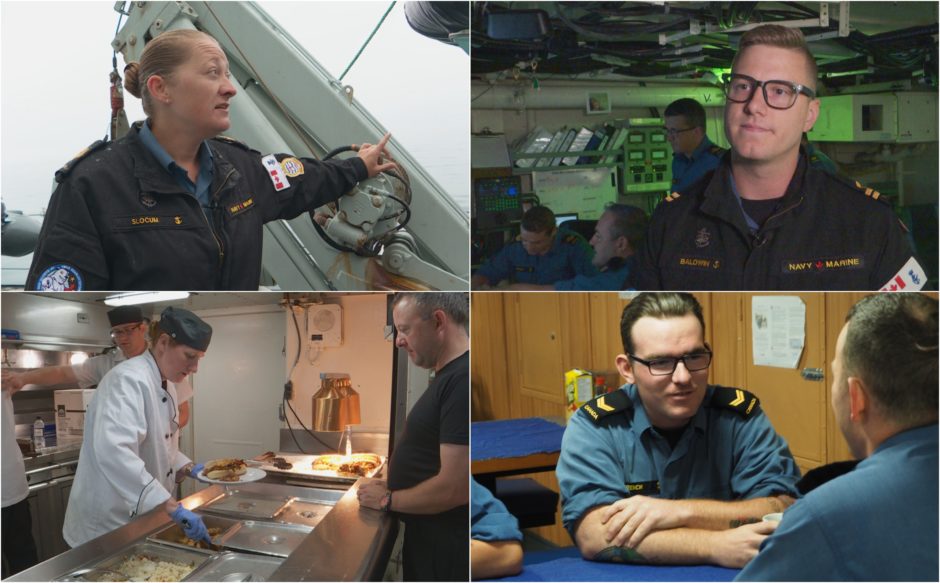September 3, 2018
Every time Janna Slocum heads out to sea, she leaves a lot behind.
"Definitely missing family," she says, from aboard the HMCS Charlottetown.
Slocum’s daughters, 6 and 14, are in Halifax. At this time of year, it’s even harder for her to be at sea.
"First day of school is coming and we're not going to be there," she says.
It takes a supportive partner to make it work, and in Slocum's case, her husband knows exactly what it's like — he's in the navy too.
"He gets posted to shore and I'll be out to sea, and vice versa," Slocum said.
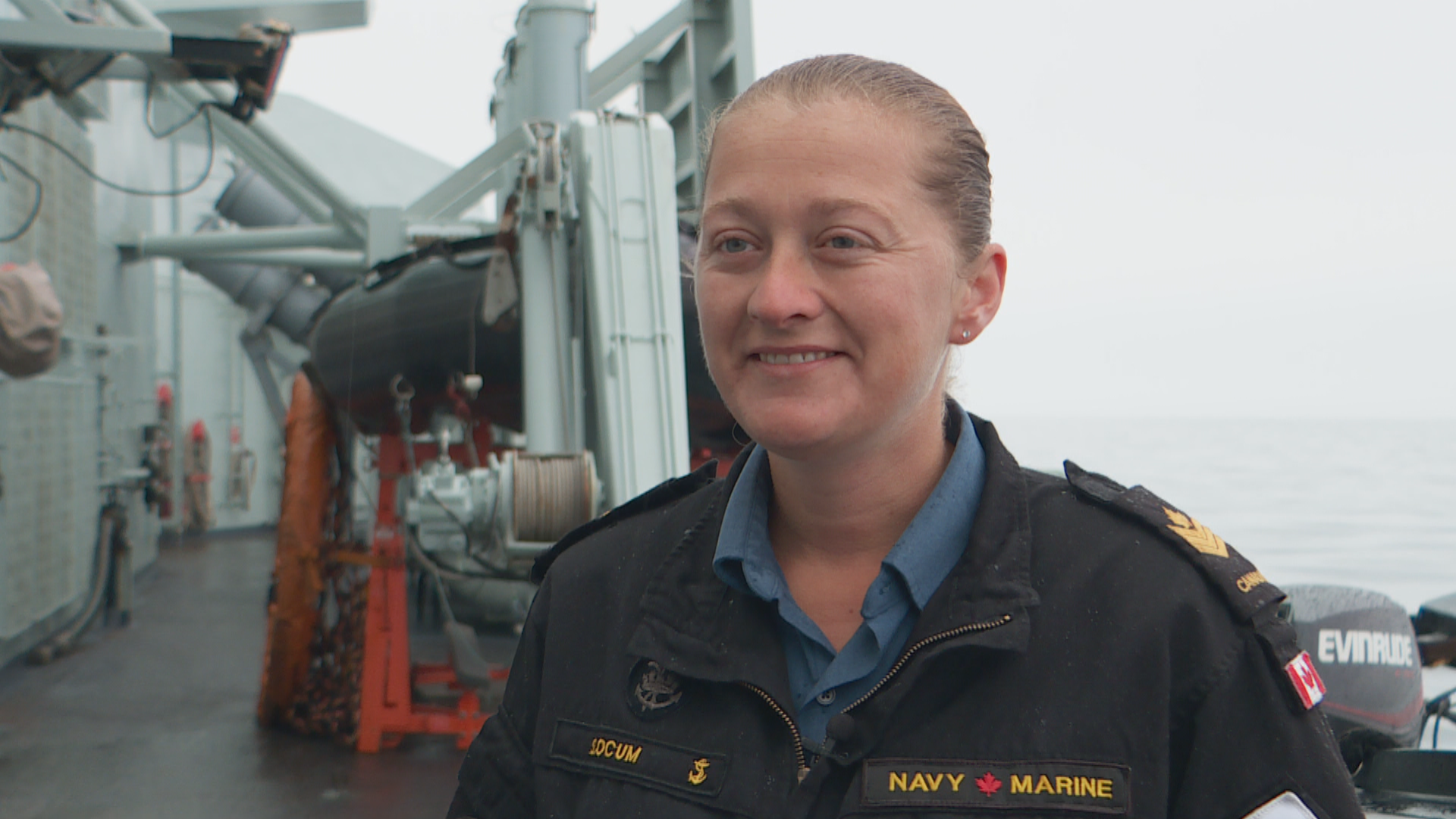
From the outside, Slocum says it may seem to some people like parenting alone would be difficult. But, she says, the friends you make at sea help you when you’re on land.
Slocum, who’s originally from Newfoundland and Labrador, is one of the more than a dozen sailors from the province on board the Charlottetown during Operation Nanook, the annual exercise for the Canadian Forces in the Arctic.
"You have [comradery] whether at sea or at home," she says. "They're like your brothers or sisters, so always have that help with you."
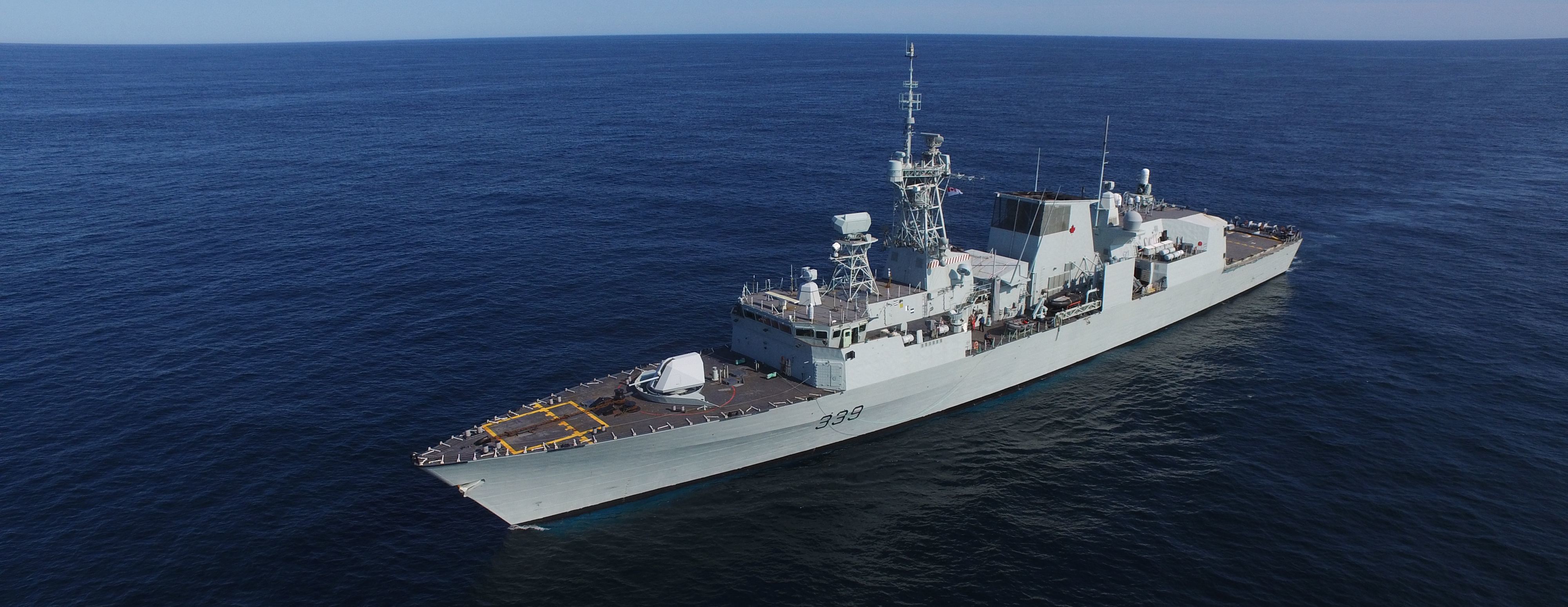
That close connection is formed in close quarters on the ship. There is very little personal space for the 240 sailors who work, eat, relax and even sleep together.
"This is my mess; I live here with 12 other guys," says Dylan French, as he shows off his quarters on board the ship.
"I should say 12 of my best friends, because we're stuck here all the time," he says with a smile.
The bunks, or racks as they're called in the navy, are stacked three high, so when French lies in bed, there’s only about eight inches between his face and the bunk above him.
It takes a bit of finessing to get in.
"I pop a little squat and roll on in," he said.
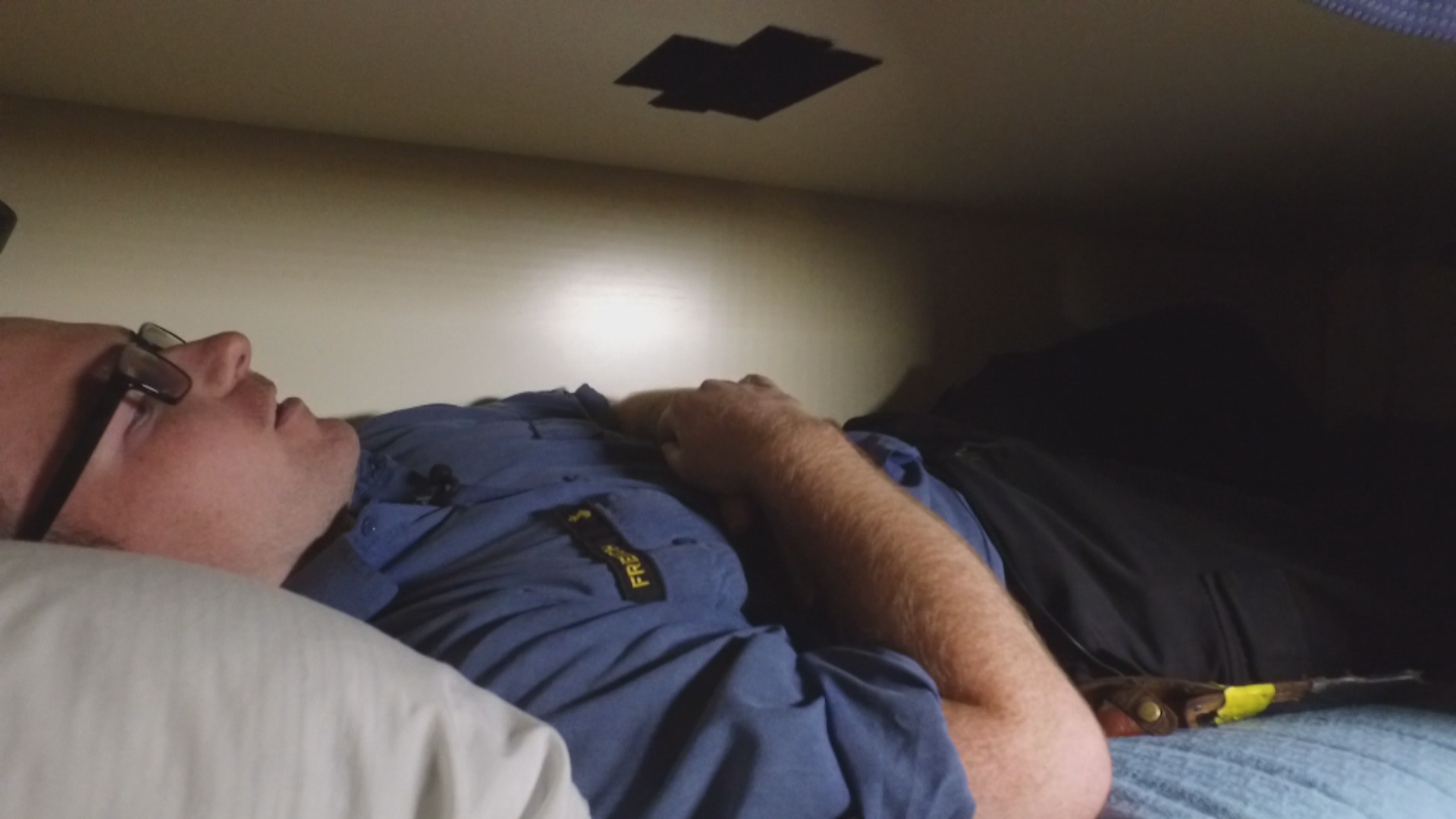
There's Velcro stuck on the bunk above him right at eye level, so he can attach his phone for optimum entertainment and comfort in the cramped quarters.
"I put my phone right here … watch a movie and hang out, get some alone time," he said.
With 11 other people sleeping around you, that is the only place on the ship that’s truly yours.
That alone time can be precious after long days and tight quarters, but French says he’s also made great friends that way. "It's kind of like in the Brady Bunch where everyone says goodnight to each other," he said.
Long stretches at sea
When it comes to personal effects, everyone has something to remind them of home.
For French, it’s a rug hooking his aunt made of Newfoundland and Labrador that he keeps by his pillow.
Each sailor has one locker to store everything they need for deployments, which can last five months.
Spending that long at sea in such cramped quarters definitely isn’t for everyone, and sometimes you need to get inventive. For example, French has bungee cords stuffed with socks and underwear on the door of his locker.
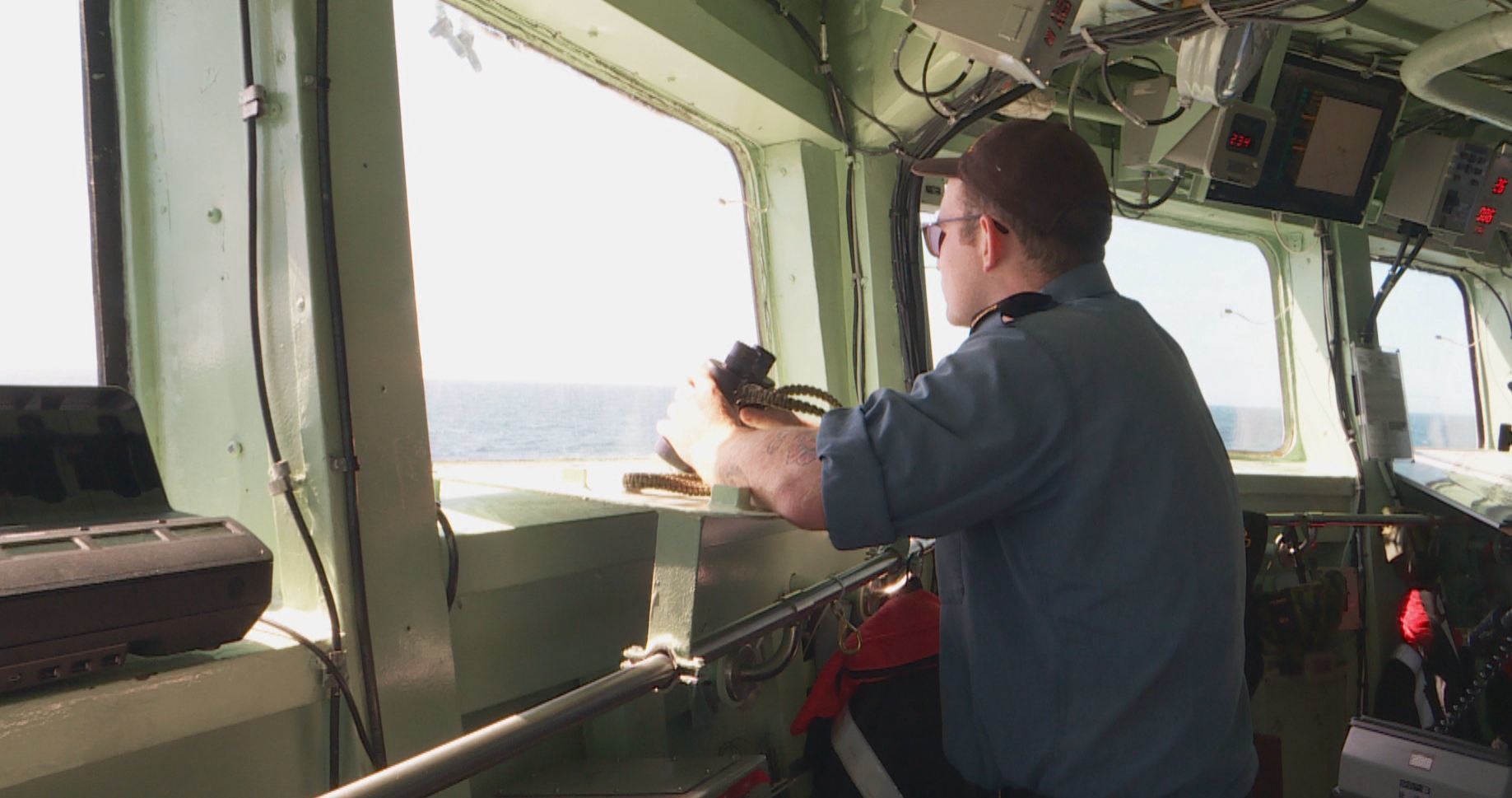
"It's definitely a skill," says French. "You learn different tips and tricks on organizing certain things."
French joined the navy right out of high school. He didn't know what he wanted to do, and didn’t want to take on a pile of student debt, so as friends headed off to college and university, he decided to enlist.
"My grandfather was in the Royal Newfoundland Regiment, so coming into this seemed like a pretty easy life choice for me," he said.
On board he's a boatswain, a job that involves all tasks that come to mind when you think of a sailor. One day, French is keeping a lookout for icebergs on the bridge; the next, he's driving the small inflatable boats to ferry people to and from the Charlottetown.
He even gets to sit at the helm and steer the ship.
The job takes him away from his girlfriend — a lot. French has been at sea for eight of the last 12 months. But she comes from a military family, so she’s understanding, French says.
He says the pay that you get in the navy is decent, but nowhere near what you'd get if you went to Alberta to work in the oil industry.
Plus, at sea, you’re in for an adventure, French says.
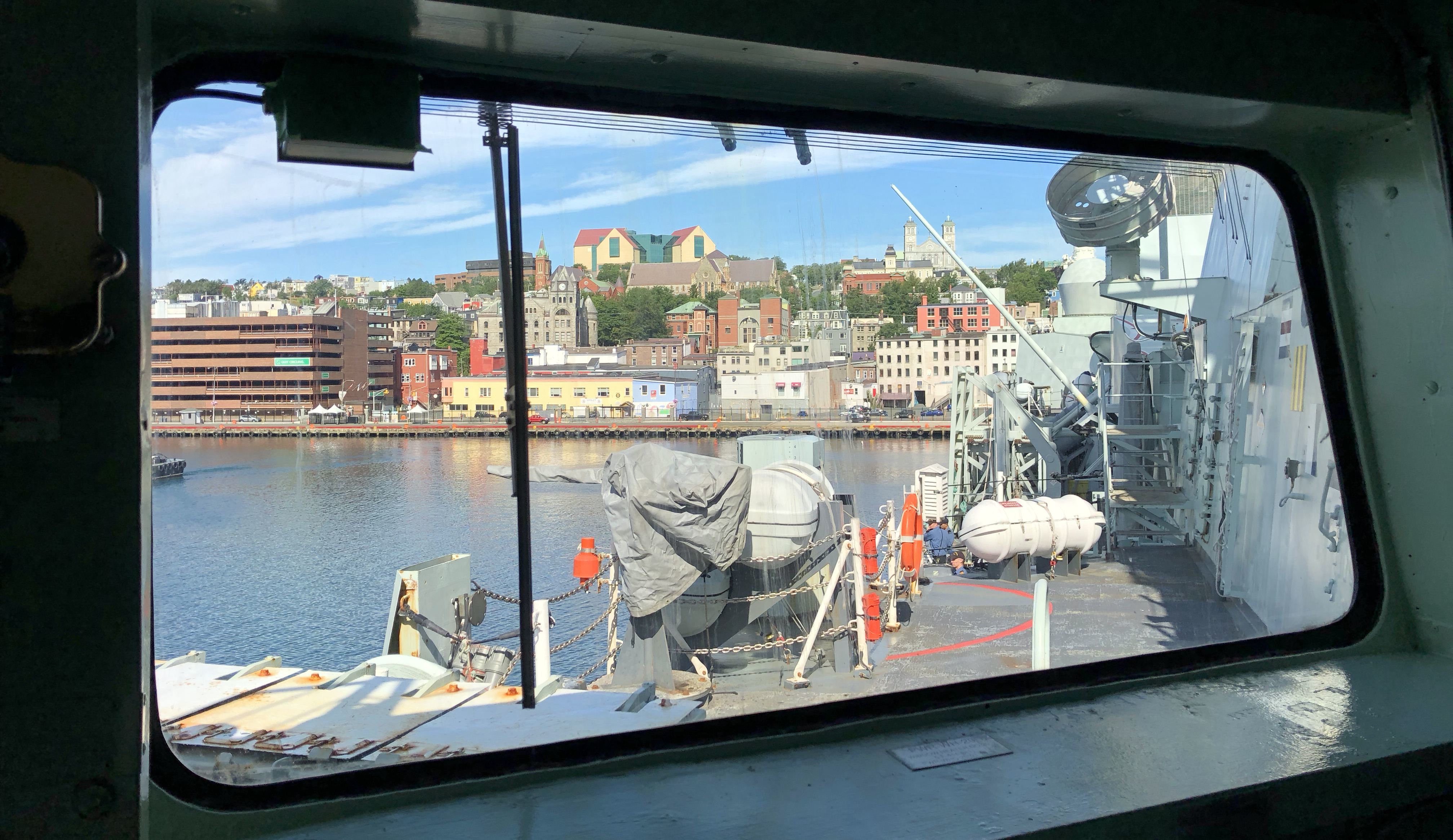
During the month of August, the Charlottetown crew is visiting Greenland and Nunavut, checking out icebergs and the northern lights.
"Growing up in Newfoundland, you don't get to do a lot of travelling; you're isolated on an island,” he said.
“Flights are expensive. So [by] joining the navy, I've been all over the globe in the past four years. It's pretty crazy.”
A life on the water
The other thing the navy can provide is leadership experience from a young age — at least, for Johnathen Baldwin, who knew since high school he was meant for a life on the water.
Baldwin got his first experience in the sea cadets in St. John’s. He joined through the officer training program, getting a degree at Memorial University and became an engineer on the ship.
Now, Baldwin is training to lead the entire engineering department. Before he's 30, he'll be managing more than 60 people and is the man the captain trusts to keep the ship moving.
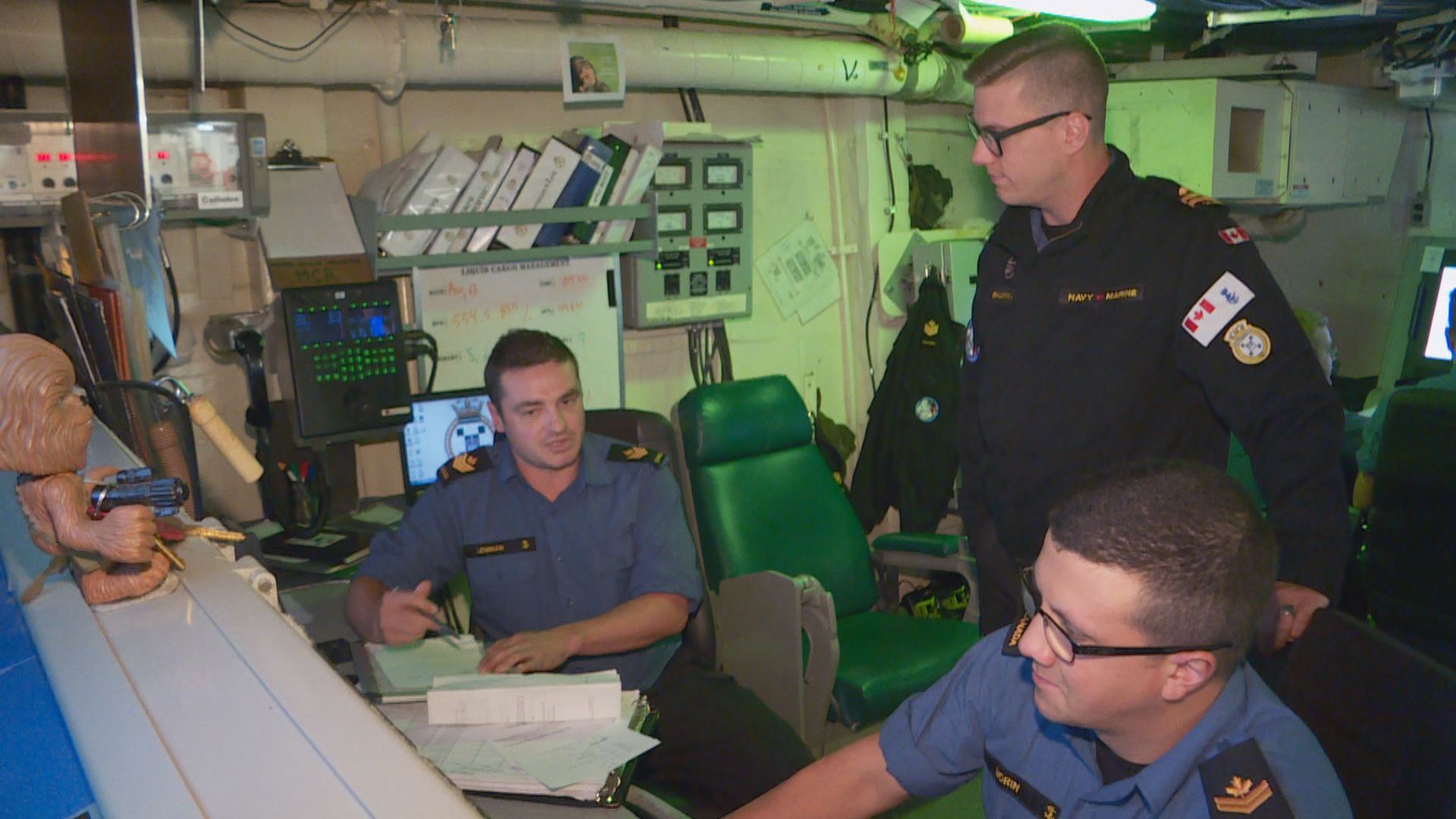
"You have men and women and people coming up to you with very different issues, and you're expected to help guide them through that process, and so it's very challenging sometimes because there's a life experience that you never had yourself," said Baldwin.
"Friends of mine are quite taken aback by some things I've had to deal with."
When the ship is at sea for long periods of time, there are no mechanics to call in, so the team on board has to keep the complicated systems running.
Water purifiers, generators and the two giant turbine engines that give the ship its speed and maneuverability all have to be kept running.
Feeding the sailors
But the sailors can’t keep up with their tasks without hearty meals, and that’s Lisa Jean Roberts's job.
For 16 years, she lived in Newfoundland — but now Halifax is home.
Every day, she has to make sure 240 people get five meals a day (and a 24-hour operation means extra meals for hungry sailors working odd shifts).
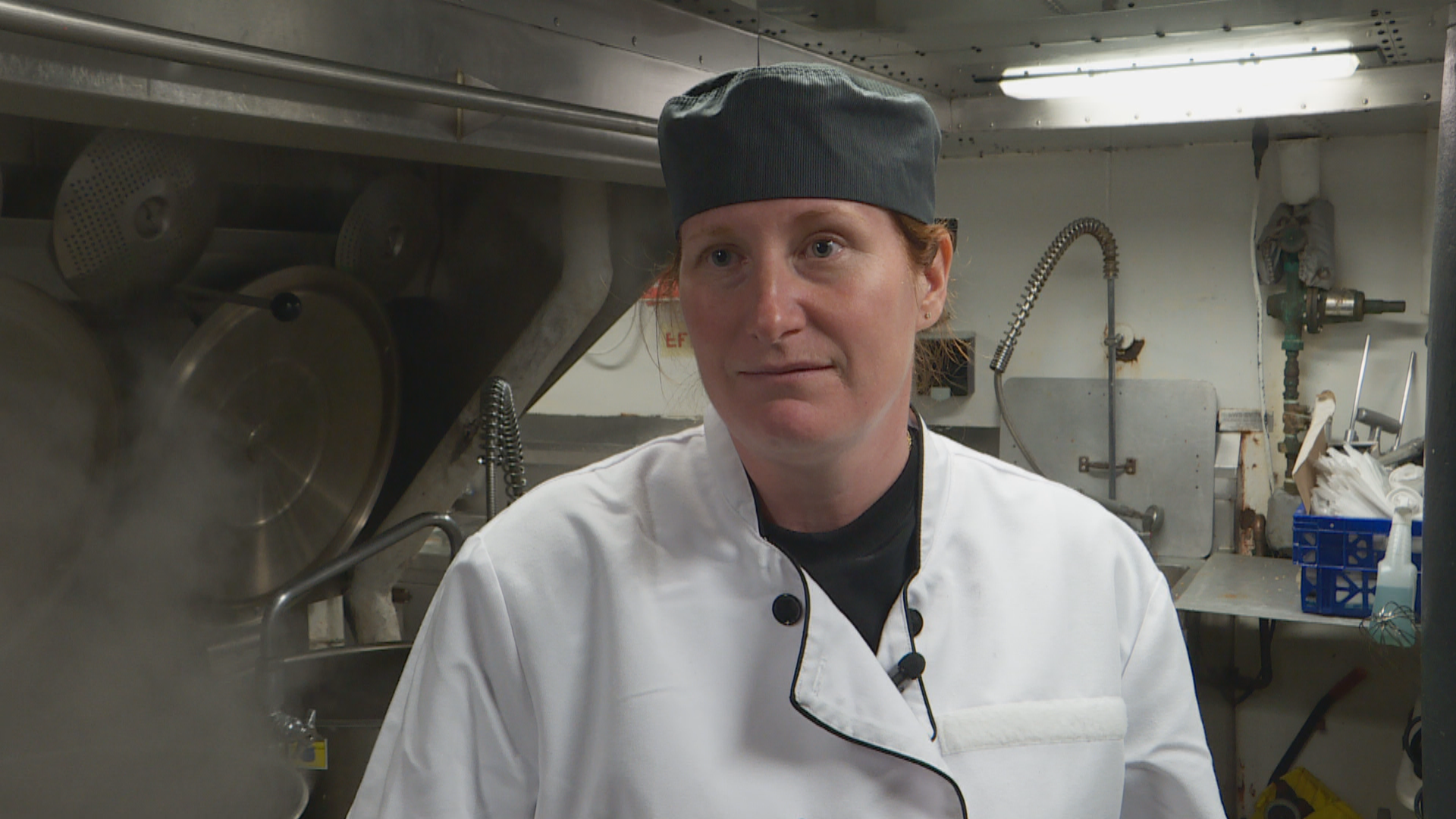
"I became a cook because I never wanted to be hungry," Roberts said, only half joking.
"It sounds stupid, but I, or any cook in the military, are the only people who can eat 24 hours a day, if we're hungry at 2 a.m. and we want a sandwich, we can go make one."
Over the last 18 years, Roberts has been in the military: she’s been a cook on a military base, on a ship and even on a submarine.
The happiness of the ship’s crew rests on her shoulders, she says.
"Food plays a big part of morale on board the ship."
The sailors don’t have the option of making their own food or ordering takeout, but there are always three meal options. And after a long, cold day of working outside, a good meal is something they look forward to.
"A homemade cookie can make or break somebody's day, that's how big it is,” said Roberts. “You have nowhere to go on here.”
If you want to see how much people on board look forward to meals, just try to get in their way when the cafeteria is serving a full turkey dinner, or when they're scooping up Sunday sundaes.
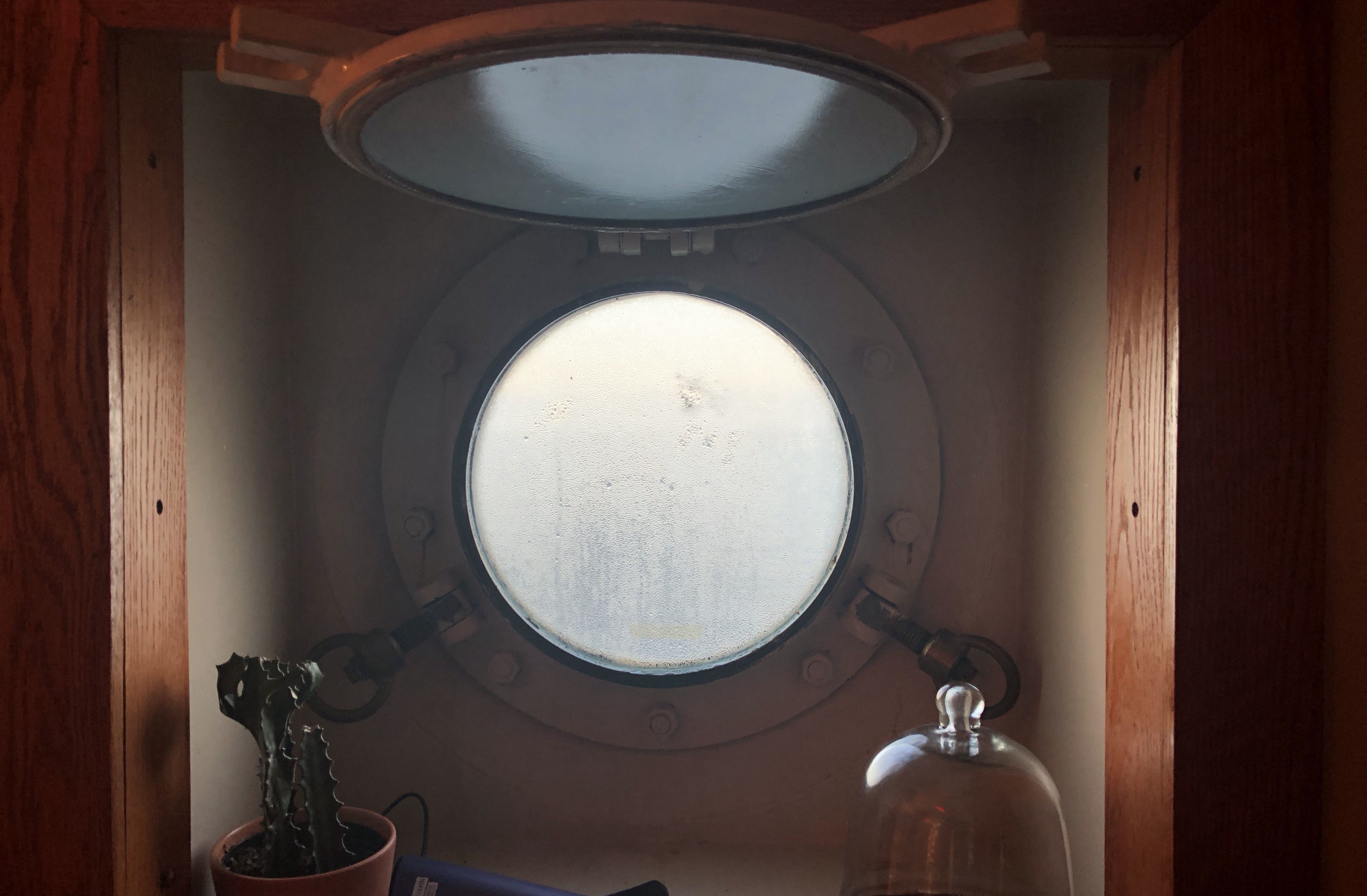
Like everyone else on the ship, Roberts has to be prepared for everything.
There won't be a chance to take on supplies for the month that the Charlottetown is at sea, so the meals will start with fresh salads. But by the end of a journey, the crew will be eating more root vegetables, which have a longer shelf life.
Plus, Roberts keeps $800,000 worth of frozen food on board, just in case.
"You can't get the challenges that you have on a ship or a submarine or on an army base that you can in a restaurant; there's things being thrown at you all the time in a military lifestyle," she said.
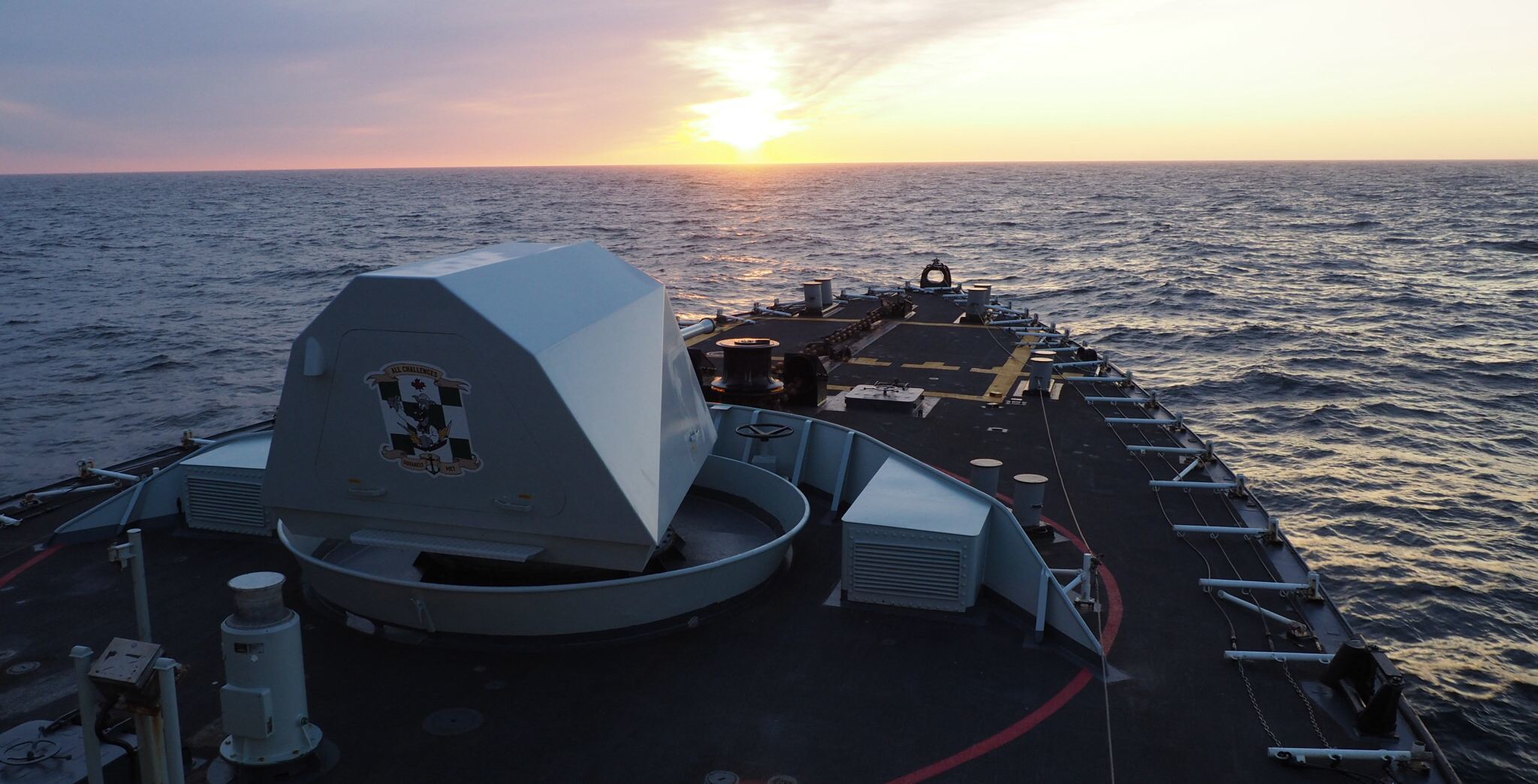
Roberts, who has worked in the military for nearly two decades, says technology has eased some of the difficulties of leaving family behind. But when you're at sea, there's no Snapchat, Instagram or FaceTime.
There are computer terminals to check Facebook, even if the connection is extremely slow, and eventually the ships will be outfitted with Wi-Fi.
“As soon as we get into a foreign port, the first thing you’re doing is getting on the phone and you’re talking,” said Roberts.
“Normally at sea, it's through email.”
But for some sailors, the sacrifice that families have to go through is just too much.
When Dylan French is ready to start a family, he knows it will be the end of his career in the navy.
"Growing up, my dad was on the road a lot," said French. "I definitely don't want that for my kids."
